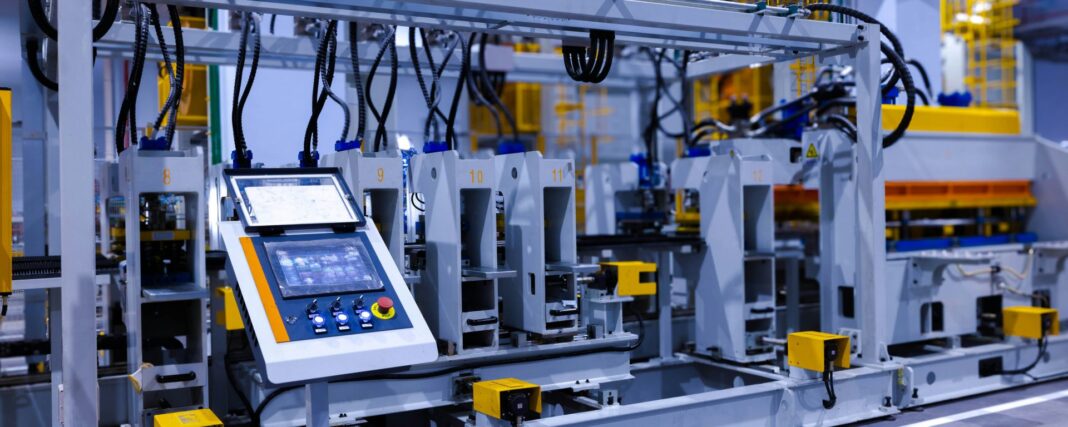A finely tuned machine doesn’t just build parts—it builds consistency, speed, and precision into every stage of production. Across Alabama, manufacturers are turning to CNC machining for tight-tolerance work that’s fast, clean, and highly repeatable. Whether it’s a robotics engineering company in Alabama or a custom metal shop using a CNC plasma cutter, the benefits are real and measurable.
Unmatched Accuracy in Component Fabrication
Accuracy isn’t optional in modern manufacturing—it’s expected. CNC machining in Alabama is meeting that expectation with precision that manual methods can’t match. Whether cutting aluminum brackets for automation systems or crafting steel components for industrial machinery, the level of detail achieved is consistently impressive. CNC routers and plasma cutters are now staples for fabricating intricate designs with tolerances as tight as a few microns.
That level of precision means fewer rejected parts and faster final assemblies. It also allows Alabama manufacturers to service high-stakes sectors like aerospace, defense, and advanced robotics. For a robotics engineering company in Alabama, hitting exact specs every time isn’t a luxury—it’s what keeps systems functioning at peak performance.
Exceptional Repeatability Ensuring Uniform Part Quality
Producing a perfect part once is good. Producing that same part perfectly a thousand times? That’s the real game-changer. CNC machines excel in repeatability, making them essential for manufacturers that need consistent part quality over long production runs. No matter the volume, CNC machining holds tight tolerances without slipping on quality or speed.
This matters especially to companies building robotic assemblies or automated equipment. Uniformity means parts fit precisely, wiring lines up correctly, and performance doesn’t drop over time. With automated precision, Alabama’s high-tech manufacturers can confidently scale production knowing that their 100th unit is just as flawless as their first.
High-quality Cut Surfaces That Minimize Secondary Finishing
CNC machines, especially those using high-speed tools or CNC plasma cutters, don’t just cut—they sculpt. Clean, polished edges come standard, which dramatically reduces the need for post-processing. This is a huge time-saver for shops that used to spend hours grinding, sanding, or polishing just to meet client expectations.
Less finishing also means fewer chances to introduce human error. By letting the machine do more of the heavy lifting, manufacturers save both time and materials. For industries requiring tight timelines and polished finishes—like those producing robotics or custom enclosures—these machines simplify the workflow without cutting corners.
Streamlined Production Reducing Cycle Times
Efficiency isn’t just a buzzword—it’s how businesses stay competitive. CNC machining in Alabama has helped slash cycle times, taking hours or even days off traditional machining schedules. That’s because these machines don’t need breaks, don’t guess, and rarely need adjustment between identical runs.
From the moment a program is loaded, CNC machining systems go to work at full throttle. They mill, cut, and drill faster than manual equipment, and they can even switch between operations with minimal downtime. For Alabama manufacturers under pressure to deliver quickly without sacrificing quality, the speed advantage of CNC equipment is a clear win.
Consistent Manufacturing Output over Large Batches
Manual machining can lead to inconsistency in larger production runs. Slight variations in measurements or operator fatigue can introduce problems that multiply with volume. CNC systems eliminate that risk. Once a digital blueprint is programmed, it doesn’t change. That consistency allows for huge runs of components without worry about deviation or defects.
This reliability becomes a key asset for any robotics engineering company in Alabama producing parts that must integrate flawlessly. Consistent output also means easier inventory planning and reduced quality control issues. With CNC precision, there’s no guessing—just smooth, uninterrupted output.
Improved Material Utilization with Minimal Waste
Materials like steel, aluminum, and composites aren’t cheap—and wasted stock adds up fast. CNC machining has significantly improved how materials are used in Alabama’s production environments. Machines are programmed to cut tight patterns, nesting parts in a way that reduces excess scrap. That means more parts per sheet, fewer offcuts, and smarter use of resources.
Whether it’s using a CNC plasma cutter for sheet metal or milling blocks of alloy, the result is less waste and more savings. For manufacturers conscious about cost and environmental impact, efficient material usage is more than smart—it’s essential. This advantage strengthens profit margins while supporting sustainability goals.
Enhanced Production Efficiency Through Integrated Automation
Automation isn’t the future—it’s already reshaping how Alabama companies build. CNC machining integrates beautifully with robotics, sensors, and software platforms, creating a seamless production line that moves without pause. From loading raw material to inspecting the final part, many steps can now be automated, freeing up human talent for higher-level tasks.
This integrated workflow is especially helpful for robotics engineering firms building complex systems that require exact part positioning and reliable timing. Automation keeps things running smoothly 24/7, without the fatigue or errors that slow manual processes. CNC technology doesn’t just make parts—it helps build smarter systems that improve how entire facilities operate.


